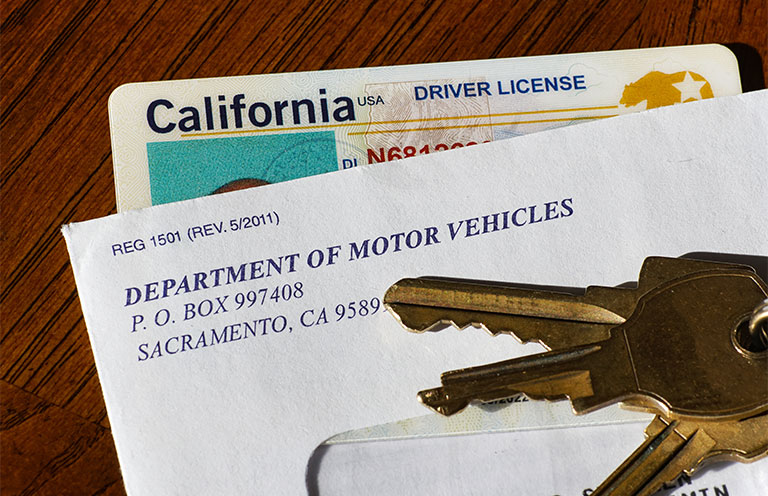Lost-Wallet Woes: What to Do the Moment Your Wallet Goes Missing
These smart moves can help you protect your money and identity—plus the one thing experts say never to carry in your wallet


Along with your teeth falling out and forgetting to show up for a final exam, losing your wallet ranks right up there with the most common dreadful dreams. But imagine this dream suddenly became a reality when you can’t remember where you left your wallet last—or worse, think it may have been stolen. If retracing your steps to where you last had your wallet turns up empty—including checking with the businesses you visited—what should you do next? Don’t delay, say the experts at Experian, the Consumer Financial Protection Bureau, and the Federal Trade Commission. Take these actions pronto to help minimize any damage to your finances and your personal identity.

Contact your card issuers
If you carried your debit card in your wallet, contact your bank immediately. Note the date and time that your card went missing. If you contact your bank within two business days of the loss, you’re responsible for a maximum of $50 in unauthorized purchases, according to the Federal Trade Commission. After day two but before day 60, that liability jumps to up to $500. If you wait longer than 60 days, you could be on the hook for a thief’s entire shopping spree.
Next, contact your credit card company to report any lost or stolen cards; most offer customer support 24/7/365. Fortunately, federal law caps your liability to $50 for unauthorized purchases on a reported lost or stolen credit card. Some cards even offer zero liability.
(Your bank or credit card company may also have an app or dedicated phone line that allows you to quickly lock your debit and credit card—and then easily unlock them if you find your misplaced cards.)
While you wait for any needed replacement cards containing new account numbers, remember to switch your automatic payment accounts that have the now-canceled cards connected to them and update them with your other active cards or make manual payments in the meantime. It’s also prudent to change any online usernames and passwords that could have been compromised and enable two-factor authentication when available.
Submit a police report
Even if the police can’t recover your wallet, filing a report with them can help safeguard your identity. The report serves as evidence of your being the victim of a crime and assists your card companies in their fraud investigations. Be sure to get the investigating officer’s contact information, and when the completed report is available, request a hard copy for your records.

Contact the credit report bureaus
Contact one of the nationwide credit reporting bureaus—Experian, TransUnion, or Equifax—to put a free fraud alert on your account that can be in effect for up to 12 months, or for identity-theft victims, up to seven years, according to Experian. (By law, that bureau must share the alert with the other two bureaus, so there’s no need to contact all three.) With an alert set up, lenders pulling your credit must take additional steps to verify your identity.
If you want further protection, you can freeze your credit report so that thieves cannot open new credit accounts in your name. For a credit freeze, you need to contact each of the three bureaus. A nominal fee for freezing and unfreezing your credit may apply, unless you’re a victim of identity theft—then it’s free.

Change your locks
If you kept an extra house key or car key in your wallet, be sure to change the appropriate locks. It’s also wise not to store your keys with cards showing personal information such as your home address.
Obtain a new driver’s license
Contact your state’s Department of Motor Vehicles to request a replacement license (requirements vary by state). If your license was stolen, you may be asked to provide a copy of the police report.
Contact your health insurer
If your health insurance card was in your wallet, contact your insurance company for a new card, and request a new ID number to protect yourself from medical identity theft—yes, it’s a thing.

More precautions to remember
Never keep your Social Security Card in your wallet
You rarely need the physical card, and carrying it puts your identity at risk. While the Social Security Administration may send you a new card, you likely won’t get a new Social Security Number. Guard that number as if it were gold. Likewise, never carry your birth certificate in your wallet.
Pare the contents of your wallet to only what you use regularly
That includes keeping your checkbook, seldom-used credit cards, and passport at home. Inventory everything in your wallet, and securely store copies of cards to have your account and contact numbers if needed.
Closely monitor your credit card and bank statements
If you notice any suspicious activity, promptly contact your card issuer. Thieves sometimes make minor charges to your accounts to test the waters for further fraud, so look at even the smallest charges. You can also order one copy of your credit report from Equifax, Experian, and TransUnion for free once a year. For round-the-clock monitoring, you may want to consider purchasing identity-theft protection, too.
And, of course, try not to panic. Being proactive can help thwart would-be thieves, and there’s always hope that your wallet will turn up exactly where you finally remember leaving it.
